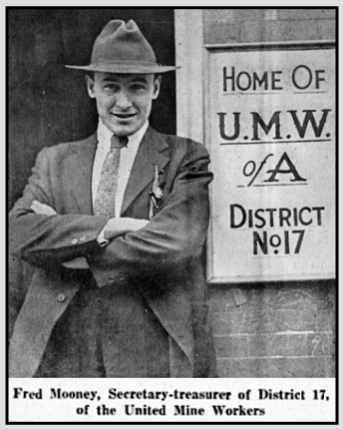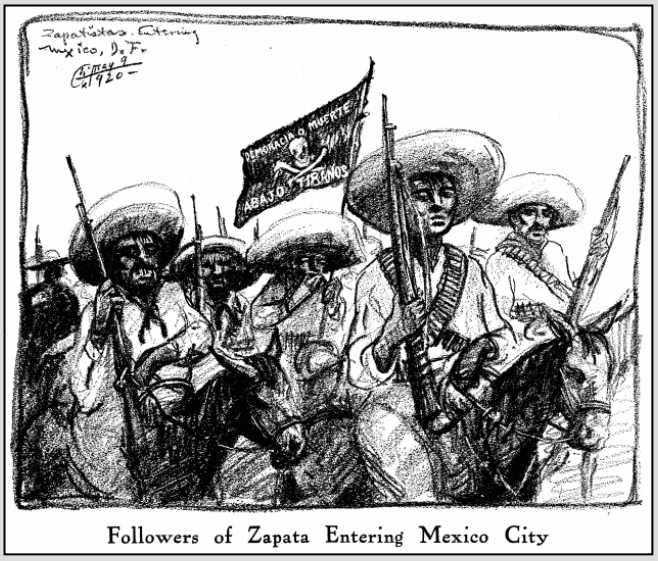 —————
—————
Hellraisers Journal – Saturday April 2, 1921
Secretary-Treasure Fred Mooney Reports on Trip to Mexico City
From the United Mine Workers Journal of April 1, 1921:
Circular Sent Out by Secretary-Treasurer Mooney
Fred Mooney, secretary-treasurer of District 17, has sent a circular letter to all local unions of that district entitled, “An Open Declaration of War,” in which he tells of the great attack that is being made on organized labor by that element of employers opposed to labor unions. He shows that the declaration of these employers in favor of the open shop is a declaration of war against labor. He calls upon organized labor everywhere to stand together in this crisis. He urges more thorough organization of workers into unions, so that they may be in position to meet the attack and defeat the effort that is being made to destroy labor unions.
Another circular which Secretary Mooney has sent out deals with his recent trip to Mexico City as representative of District 17 to the Pan-American Labor Congress. Among the interesting passages in this circular is the following:
Progress was reported from every quarter of Mexico and for many independent countries of South America. Four states of Mexico reported the election of Socialist or Labor Party Governors; in four different states of Mexico it constitutes a violation of law for an employer to hire non-union labor when union men are on strike to better their conditions. The federal constitution of Mexico provides that any employer who discharges an employe for union activities shall pay the employe three months’ wages in advance.
Mexico today has one of the most liberal and friendly governments towards the workers that is in existence on the Western Hemisphere, and the workers are building up a strong labor movement, their chief desire is to be let alone to work out their own destiny. The Mexican Regional Confederation of Labor has a membership of 450,000, among which are 82,000 railroad men, 7,000 munition workers, 18,000 carpenters, 3,000 miners, the remainder is composed of different trades. Luis N. Morones, president of the Confederation of Labor, is also chief of Military Commissariat, and one of the reservations made by him when accepting government appointment was that his service to his government should not interfere with his activities in the Federation of Labor, and that every employe under him must be permitted to join the Federation of Labor if they so desired; this was granted. Every member of the Federation of Labor who is elected or appointed to any government position must pay one-sixth of his salary each month into the treasury of the Federation of Labor. Morones is well educated, a born leader, knows no fear when fighting for his class—he was sentenced to be shot four different times during the revolution.


 ———-
———-